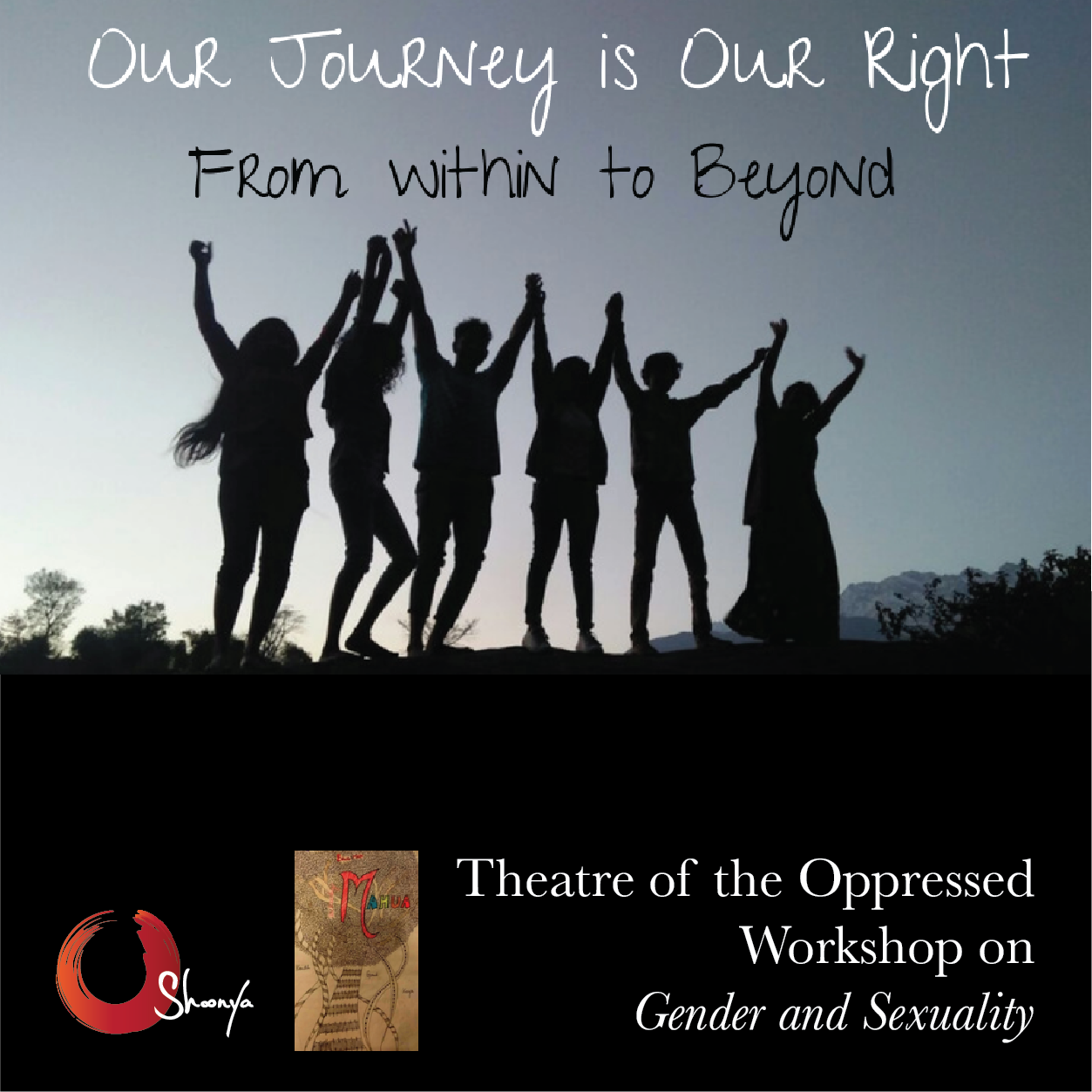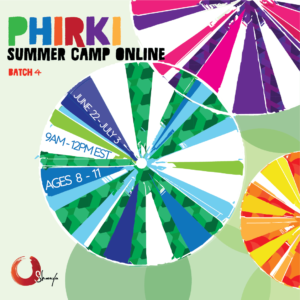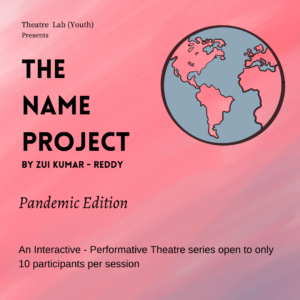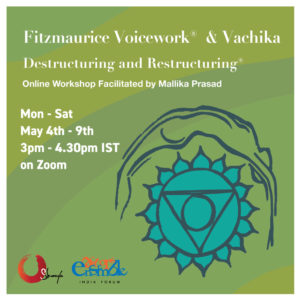Our Journey is Our Right! (Theatre of the Oppressed Workshop)
Theater
Workshop
Tue, 08 Jan 2019 TUE - FRI
10.30 AM to 5 PM
₹6,000
Includes Lunch

Join us on a creative journey of expression where we immerse ourselves in the world of political theatre. A journey in which we explore artistic ways of critical thinking and action on the theme of Gender and Sexuality!
Registration reserved on first come, first serve basis. The number of registrations open are 25.
Description of the Workshop
This workshop will culminate in a unique performance where the audience too will be engaged in creative and political expression.
We will together create a safe space where we can share our stories, learn to listen and build a deeper understanding of Gender and Sexuality. Let us come together on this fun journey to examine our perceptions, birth new ideas and be a part of the resistance!
Timeframe
4 days of exploration, learning, laughter, expression, acceptance and resilience.
Please note that this is an intensive training workshop that requires at least 6 hours of work a day apart from break times. The sessions are scheduled from 10:30 am to 5:30 pm.
Eligibility
Anyone aged 18 years or above with an interest in engaging with the discourse on Gender and Sexuality and wanting to learn about the practice of Theatre of Oppressed.
Language
Instructions will be in English, but dialogues and expressions in various languages are encouraged.
Methodology
The main techniques used will be of Theatre of the Oppressed (TO), with elements of other art-based participatory theatre techniques.
Theatre of the Oppressed was developed by Augusto Boal and shares roots with the Pedagogy of the Oppressed, a philosophy of education and social change articulated by Paulo Freirre.
Forum Theatre is one branch of Theatre of the Oppressed which offers people the possibility of identifying social issues, articulating them in the form of short plays and creating a platform in which an active dialogue between the actors and the spectators is instigated to try and change the story. It is an interactive mode of behaviour which stimulates evaluation, critical thinking and imaginative responses.
Forum Theatre allows us to create a rehearsal space for revolution. It is an innovative method used to discover new strategies in confronting oppression.
During the sessions, our focus will be on finding ways to express ourselves in the way we want to, reclaiming spaces for our stories and narratives.
About the facilitators
ARUNDATHI
Arundathi has worked in the sector of social work and human rights for over 10 years now. She co-founded Mahua Tripps, an informal artists collective with Shobha in 2016
Arundathi’s interest in theatre sparked at a very young age, and she participated in a number of theatrical performances during her school and college years.
Her first experience with participatory community theatre was during her work in the slums of Navi Mumbai with Maharashtra Mahila Parishad. She was involved with a group of women in performing a series of plays on real life incidents on Domestic Violence to spread awareness about the Protection of women from Domestic Violence Act (PWDVA), 2005.
Consequently, she worked with women groups from Narmada Mahila Sangh in association with Media Matters on producing a play on the issue of domestic violence. This play was not only performed in the villages that the women were from, but were also invited to cities like Bhopal to perform and build networks of solidarity with urban women who were survivors of domestic violence. A number of women from this group went on to become para-legals in their own communities.
Later, during her work with PRADAN in Bastar, Chhattisgarh and in association with Media Matters, she used participatory theatre methods to do a women centred learning needs assessment in the region. During this process, a group of women scripted and produced a play about their dreams and aspirations and their learning needs, which they performed in various villages.
Her interest in participatory methods of learning continued during her work as Impacts Manager in Video Volunteers. During this time, she trained over 60 community correspondents on Gender Justice modules using participatory methods of training.
Arundathi went on to become a certified Theatre of the Oppressed facilitator and is currently a member of the Federation of Theatre of the Oppressed.
As a part of Mahua Tripps, she conducted a theatre workshop for students at Christ University to talk about issues of state repression and conflict in Niyamgiri (a range of hills in Odisha inhabited by adivasi communities facing threats of forced evictions) and to introduce the technique of Theatre of Oppressed to students.
During her fellowship with Sambhaavnaa Institute of Public Policy, she co-facilitated the Social Justice component during the Nayi Dishayein summer school in 2017. During this summer school, she used theatre techniques to encourage participants to juxtapose the theoretical understanding of caste and gender to real life experiences.
In 2018, in association with Janasanskriti, she organized the workshop Theatre for Democracy at Sambhaavnaa Institute of Public Policy, for senior activists and leaders with an objective to reach out to the most marginalized communities with skills of Theatre of the Oppressed.
Consequently, she co-facilitated Drame ki Paathshaala at Sambhaavnaa Institute, a theatre workshop for teachers and social workers. The focus of this workshop was to learn by experiencing Theatre of the Oppressed techniques.
In August 2018, she facilitated a forum theatre workshop for social activists with Chhattisgarh Mukti Morcha, where a play was produced on the topic of child marriage and sexual abuse with marriage. This play was also performed in the communities and invited participatory action.
SHOBHA
Shobha is a human rights activist working on issues of social justice and human rights issues from about 16 years. She has a post graduate degree in Social work and is a certified Theatre of the Oppressed facilitator. She has been using interactive theatre from the past few years to work with people to create democratic platforms that allow for creative and free expressions.
She is interested in documenting and understanding forms of expressions traditionally used by communities to express dissent when faced by atrocities and violations and also an as an expression of love for nature.
She has been invited to conduct a series of Theatre of the Oppressed (TO) workshops in all the central prisons of Karnataka (in Gulbarga, Belagavi, Mysore, Bengaluru, Bellary, Dharwad and Bijapur) by a Bengaluru based non-profit organization called Peacemakers. The workshops were focused on providing a space for participants to express their feelings about life in the prison and the challenges that existed when they would go back to their homes.
She was invited by CG Net Swara, a community media platform to conduct an introductory training of trainers’ theatre of the oppressed workshop, for activists from Chhattisgarh and Madhya Pradesh. The workshop was focused on exploring how theatre could be used in creating truly democratic spaces in communities that participants worked with on issues of social justice.
Shobha with artists of Mahua Tripps, an informal artists collective, have also conducted introductory TO workshops for students in Christ College and other urban audiences in Bengaluru. The workshops were focused on getting a deeper understanding about struggles for social justice faced by Adivasi communities fighting for their constitutional rights, and explored if participants could find a personal connect through their own respective life experiences in different contexts.
She was invited by the White Swan Foundation to do a TO workshop for marginalised young men and women in Buddhanagar slum area, Bengaluru. The workshop aimed to create a safe space for the group to express their struggles, dreams and achievements using creative forms of communication. The workshop explored the concept of psychological and emotional wellbeing; what it means to each of the participants, their feelings, expressions and challenges with respect to that.
She was invited by Shrishti Institute of Art, Design and Technology, as a part of their Art in Transit collaboration with Bengaluru Metro, to do a public interactive theatre performance and engagement on issues of harassment and violence experienced by women in public spaces and what we as a society would like to do about it.
Shobha worked with the Swasti Health Catalyst in February 2018 and conducted a theatre for change workshop with sex worker women in Karnataka. The workshop explored issues of gender based violations, resilience, body image and sexuality. The workshop ended with a series of forum theatre performance for an invited audience from various sex worker collectives.
She was invited by the Sambhaavna Institute, Himachal Pradesh to participate in the Theatre for democracy workshop for human rights activists and theatre for social change practitioners in March 2018.
For more about Mahua Trips, visit www.mahuatripps.wordpress.com


